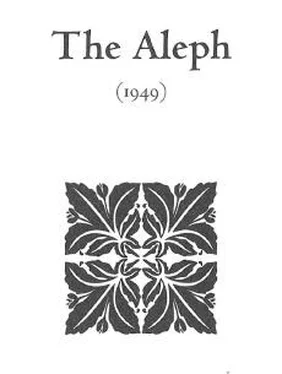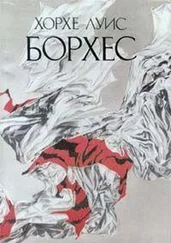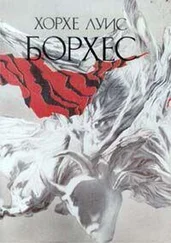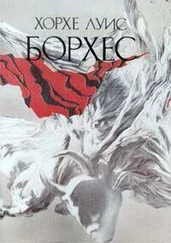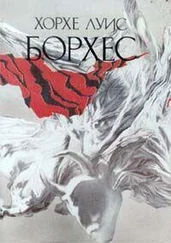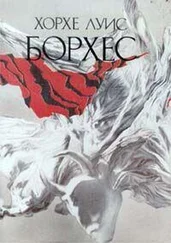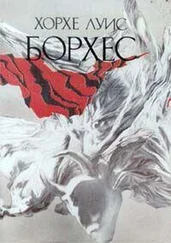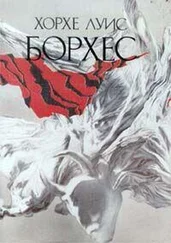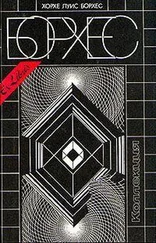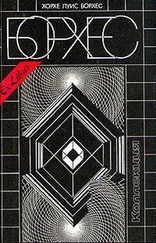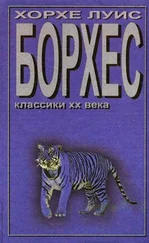Хорхе Борхес - Collected Fictions
Здесь есть возможность читать онлайн «Хорхе Борхес - Collected Fictions» весь текст электронной книги совершенно бесплатно (целиком полную версию без сокращений). В некоторых случаях можно слушать аудио, скачать через торрент в формате fb2 и присутствует краткое содержание. Год выпуска: 1999, ISBN: 1999, Издательство: Penguin (UK), Жанр: Старинная литература, на английском языке. Описание произведения, (предисловие) а так же отзывы посетителей доступны на портале библиотеки ЛибКат.
- Название:Collected Fictions
- Автор:
- Издательство:Penguin (UK)
- Жанр:
- Год:1999
- ISBN:9780140286809
- Рейтинг книги:5 / 5. Голосов: 1
-
Избранное:Добавить в избранное
- Отзывы:
-
Ваша оценка:
- 100
- 1
- 2
- 3
- 4
- 5
Collected Fictions: краткое содержание, описание и аннотация
Предлагаем к чтению аннотацию, описание, краткое содержание или предисловие (зависит от того, что написал сам автор книги «Collected Fictions»). Если вы не нашли необходимую информацию о книге — напишите в комментариях, мы постараемся отыскать её.
Collected Fictions — читать онлайн бесплатно полную книгу (весь текст) целиком
Ниже представлен текст книги, разбитый по страницам. Система сохранения места последней прочитанной страницы, позволяет с удобством читать онлайн бесплатно книгу «Collected Fictions», без необходимости каждый раз заново искать на чём Вы остановились. Поставьте закладку, и сможете в любой момент перейти на страницу, на которой закончили чтение.
Интервал:
Закладка:
II
Some limited and waning memory of Herbert Ashe, an engineer for the Southern Railway Line, still lingers in the hotel at Adrogué, among the effusive honeysuckle vines and in the illusory depths of the mirrors. In life, Ashe was afflicted with unreality, as so many Englishmen are; in death, he is not even the ghost he was in life. He was tall and phlegmatic and his weary rectangular beard had once been red. I understand that he was a widower, and without issue. Every few years he would go back to England, to make his visit (I am judging from some photographs he showed us) to a sundial and a stand of oak trees. My father had forged one of those close English friendships with him (the first adjective is perhaps excessive) that begin by excluding confidences and soon eliminate conversation. They would ex-change books and newspapers; they would wage taciturn battle at chess.... I recall Ashe on the hotel veranda, holding a book of mathematics, looking up sometimes at the irrecoverable colors of the sky. One evening, we spoke about the duodecimal number system, in which twelve is written 10. Ashe said that by coincidence he was just then transposing some duodecimal table or other to sexagesimal (in which sixty is written 10). He added that he'd been commissioned to perform that task by a Norwegian man ... in Rio Grande do Sul. Ashe and I had known each other for eight years, and he had never mentioned a stay in Brazil. We spoke of the bucolic rural life, of capangas* of the Brazilian etymology of the word "gaucho" (which some older folk in Uruguay still pronounce as gaucho), and nothing more was said—God forgive me—of duodecimals. In September of 1937 (my family and I were no longer at the hotel), Herbert Ashe died of a ruptured aneurysm. A few days before his death, he had received a sealed, certified package from Brazil containing a book printed in octavo major. Ashe left it in the bar, where, months later, I found it. I began to leaf through it and suddenly I experienced a slight, astonished sense of dizziness that I shall not describe, since this is the story not of my emotions but of Uqbar and Tlön and Orbis Tertius. (On one particular Islamic night, which is called the Night of Nights, the secret portals of the heavens open wide and the water in the water jars is sweeter than on other nights; if those gates had opened as I sat there, I would not have felt what I was feeling that evening.) The book was written in English, and it consisted of 1001 pages. On the leather-bound volume's yellow spine I read these curious words, which were repeated on the false cover: A First Encyclopaedia of Tlön. Vol. XI. Hlaer to Jangr. There was no date or place of publication. On the first page and again on the onionskin page that covered one of the color illustrations there was stamped a blue oval with this inscription: Orbis Tertius. Two years earlier, I had discovered in one of the volumes of a certain pirated encyclopedia a brief description of a false country; now fate had set before me something much more precious and painstaking. I now held in my hands a vast and systematic fragment of the entire history of an unknown planet, with its architectures and its playing cards, the horror of its mythologies and the murmur of its tongues, its emperors and its seas, its minerals and its birds and fishes, its algebra and its fire, its theological and metaphysical controversies—all joined, articulated, coherent, and with no visible doctrinal purpose or hint of parody.
In the "Volume Eleven" of which I speak, there are allusions to later and earlier volumes. Néstor Ibarra,* in a now-classic article in the N. R. F., denied that such companion volumes exist; Ezequiel Martinez Estrada* and Drieu La Rochelle*have rebutted that doubt, perhaps victoriously. The fact is, the most diligent searches have so far proven futile. In vain have we ran-sacked the libraries of the two Americas and Europe. Alfonso Reyes,* weary of those "subordinate drudgeries of a detective nature," has proposed that between us, we undertake to reconstruct the many massive volumes that are missing: ex ungue leonetn. He figures, half-seriously, half in jest, that a generation of Tlönists would suffice. That bold estimate takes us back to the initial problem: Who, singular or plural, invented Tlön? The plural is, I suppose, inevitable, since the hypothesis of a single inventor—some infinite Leibniz working in obscurity and self-effacement—has been unanimously discarded. It is conjectured that this "brave new world" is the work of a secret society of astronomers, biologists, engineers, metaphysicians, poets, chemists, algebraists, moralists, painters, geometers,..., guided and directed by some shadowy man of genius. There are many men adept in those diverse disciplines, but few capable of imagination—fewer still capable of subordinating imagination to a rigorous and systematic plan. The plan is so vast that the contribution of each writer is infinitesimal.
At first it was thought that Tlön was a mere chaos, an irresponsible act of imaginative license; today we know that it is a cosmos, and that the innermost laws that govern it have been formulated, however provisionally so. Let it suffice to remind the reader that the apparent contradictions of Volume Eleven are the foundation stone of the proof that the other volumes do in fact exist: the order that has been observed in it is just that lucid, just that fitting. Popular magazines have trumpeted, with pardonable excess, the zoology and topography of Tlön. In my view, its transparent tigers and towers of blood do not perhaps merit the constant attention of all mankind, but I might be so bold as to beg a few moments to outline its conception of the universe.
Hume declared for all time that while Berkeley's arguments admit not the slightest refutation, they inspire not the slightest conviction. That pronouncement is entirely true with respect to the earth, entirely false with respect to Tlön. The nations of that planet are, congenitally, idealistic. Their language and those things derived from their language—religion, literature, metaphysics—presuppose idealism. For the people of Tlön, the world is not an amalgam of objects in space; it is a heterogeneous series of independent acts —the world is successive, temporal, but not spatial. There are no nouns in the conjectural Ursprache of Tlön, from which its "present-day" languages and dialects derive: there are impersonal verbs, modified by mono-syllabic suffixes (or prefixes) functioning as adverbs. For example, there is no noun that corresponds to our word "moon," but there is a verb which in English would be "to moonate" or "to enmoon." "The moon rose above the river" is "hlör ufang axaxaxas ml ö ," or, as Xul Solar* succinctly translates: Upward, behind the onstreaming it mooned.
That principle applies to the languages of the southern hemisphere. In the northern hemisphere (about whose Ursprache Volume Eleven contains very little information), the primary unit is not the verb but the monosyllabic adjective. Nouns are formed by stringing together adjectives. One does not say "moon"; one says "aerial-bright above dark-round" or "soft-amberish-celestial" or any other string. In this case, the complex of adjectives corresponds to a real object, but that is purely fortuitous. The literature of the northern hemisphere (as in Meinong's subsisting world) is filled with ideal objects, called forth and dissolved in an instant, as the poetry requires. Sometimes mere simultaneity creates them. There are things composed of two terms, one visual and the other auditory: the color of the rising sun and the distant caw of a bird. There are things composed of many: the sun and water against the swimmer's breast, the vague shimmering pink one sees when one's eyes are closed, the sensation of being swept along by a river and also by Morpheus. These objects of the second degree may be combined with others; the process, using certain abbreviations, is virtually infinite. There are famous poems composed of a single enormous word; this word is a "poetic object" created by the poet. The fact that no one believes in the reality expressed by these nouns means, paradoxically, that there is no limit to their number. The languages of Tlön's northern hemisphere possess all the nouns of the Indo-European languages—and many, many more.
Читать дальшеИнтервал:
Закладка:
Похожие книги на «Collected Fictions»
Представляем Вашему вниманию похожие книги на «Collected Fictions» списком для выбора. Мы отобрали схожую по названию и смыслу литературу в надежде предоставить читателям больше вариантов отыскать новые, интересные, ещё непрочитанные произведения.
Обсуждение, отзывы о книге «Collected Fictions» и просто собственные мнения читателей. Оставьте ваши комментарии, напишите, что Вы думаете о произведении, его смысле или главных героях. Укажите что конкретно понравилось, а что нет, и почему Вы так считаете.
